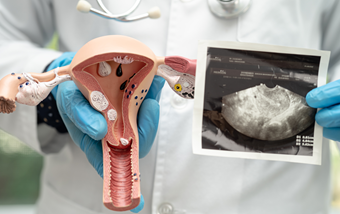Indeed, more than 8 million babies have been born from IVF since the world's first in 1978. IVF probably wasn’t something you imagined embarking upon when you began your journey to parenthood. When my husband and I decided we wanted to make a mini ‘us’ and expand our family of two to three, I must say, I was a total novice.
I knew so little about conception statistics, the female cycle and the emotional toll that trying to conceive can have on everything from relationships and friendships, to work and even travel plans (hello, Zika). When you’re trying to conceive and things aren’t exactly going to plan, it’s like a game of snakes and ladders. You’re up, down, up, down – and there’s no knowing when it will end. ‘Project baby’ can, at times, become all encompassing, and nothing can prepare you for the tidal wave of trying to conceive.
Sound familiar? Fast forward to today and you’re looking into what is involved in the lead up to IVF or are perhaps preparing for a cycle right now. I’m a firm believer in the old adage of ‘knowledge is power’. On a long-winded fertility journey, when SO much seems out of our control, if we can get a good grasp of the facts and know that we have done all we can, everything seems that much easier to process. In this post, I’m breaking down a simple checklist of what you can do to keep happy, healthy (and sane) during the IVF process. No frills, just facts and advice from one ttc’er to another.
Make sure you fully understand the process
Ask your nurse/clinic as many questions as possible so that there will be no unexpected surprises. Make lists and don’t be afraid to ask anything and everything you want.
Essentially IVF involves 3 separate processes:
1. Inducing the production of eggs (stimulating the ovaries with medication to produce more eggs)
2. Retrieving the eggs and fertilising them with your partner’s or a donor’s sperm
3. Transferring the embryo (the successfully joined sperm and egg) back into the female uterus
But that 's just the basics. In reality, IVF is much more complex, and many people are surprised to learn that it’s not a one-time clinic visit and off you go! The IVF process can be lengthy, require prior testing/procedures and may take multiple attempts. What’s more there are no guarantees of a successful pregnancy. It is worth asking your clinic to be transparent about their success rates – particularly the live birth success rate.
Reduce stress
Easier said than done, but try to get your body and mind as relaxed as possible when your start your IVF journey. Trust me, I get that when someone tells you to ‘just relax’, it can be enough to make your blood boil. But when is comes to fertility treatment, it is going to benefit you to be in a positive and calm state of mind. Meditation, yoga, journaling, spending time catching up with friends, lounging at home watching Netflix, going for a walk in nature will all help to boost your mood, reduce the fight-or-flight response than kicks in when you feel stressed and put you in a receptive physical and mental state for your IVF process.
Don’t let it take over your life
IVF is all encompassing but make sure you still do the things you enjoy – go to social events, do an exercise class, go to the cinema, go on that date night. You don’t want to be constantly thinking about IVF because, quite frankly, you’ll go mad. Make an effort to focus on things you enjoyed doing solo and with others before you began trying to conceive. It’s important not to forget who YOU are. Focusing on other aspects of your life will also help you to maintain a positive mindset by encouraging you to be present and thankful for everything that IS going your way right now.
Attend our FREE Online IVF Event with Live Nurse Q&A and get your questions answered by a Fertility Nurse Consultant.
ADDED BONUS - everyone who attends our webinar will receive £50 off an Initial Consultation and Scan at abc ivf.

Eat well and stay hydrated
Now is the time to prioritise your nutrition. Make sure to eat lots of fruit and vegetables, good sources of fibre, complex carbohydrates, and an adequate amount of protein. It’s also important to maintain a good intake of vitamins and minerals. You can talk to your clinic who can give dietary advice or recommend supplements if you’re concerned about any dietary requirements. Try to avoid overly processed foods, sugar and alcohol during this time to ensure your body is in peak condition for implantation and pregnancy. It’s important to stay hydrated throughout the IVF process too. Aim to drink at least 2-3 litres of water per day.
Prioritise self care
Look after yourself! Now more than ever, it’s crucial to put yourself first. Right now you need to prioritise good sleep, keep up some light exercise and treat yourself. Aim for 7-9 hours of quality sleep each night, partake in light exercise (swimming, yoga, cycling, pilates, walking) and do things that bring you joy/allow you to switch off. A weekend away, massage, facial, calling an old friend or reading a favourite book are all good ways to ‘do you’.
Seek and accept support
Whether it’s your partner, a family member, a close friend, a professional or a combination of all of the above, you will need a network of support around you during the IVF process. Don’t try and shoulder the burden of everything by yourself because you think you need to be ‘strong’. It’s OK to accept support and help! Talking to someone else about what you’re going through, having someone with you at your appointments and having someone help keep you grounded during the IVF process will make it ten times easier.
Final thoughts
However you arrived at this point in time, I’m betting it’s been one hell of a journey, and far from easy. Fertility treatments can take a toll both physically and emotionally, and the pressure of it all can mount up to one big ball of worry. Now is the time to really take care of your mind and body. Eat well, prioritise sleep, minimise stress, stay hydrated, seek support (professional and personal), treat yourself and most of all – give yourself a break. You ARE doing great!
I know this road is long, confusing and downright scary sometimes, but there is no one-size-fits-all when it comes to fertility and starting/growing a family and that’s a beautiful thing in and of itself.
-----
Tips from others in the TTC Instagram community!
@faithledfertility (about to start IVF) “I’ve been on the TTC journey for 2.5 years now so the preparation for IVF is an accumulation of things. Joining online forums and the TTC Instagram community has helped me to connect with other women going through a similar journey. It’s nice to connect for emotional and social support. It also helps on a practical level when we swap tips and informal reviews about doctors and clinics. I’ve also been working on my mindset and have received acupuncture.”
Alice: (currently pregnant with IVF twins) “The most crucial part for me was coming to terms with the fact that IVF might not work for us. We made plans for the future which meant I didn’t have all my hopes and dreams pinned on my final round working, so it did take the pressure off. Either way, I knew it would be OK. The main thing is to concentrate on building the strength to get through - whatever the outcome.”
Maria: “Be realistic and make sure you’re aware of the success rates. I also feel that making time for you and your significant other is so important especially when life can seem to revolve around your IVF treatment”.
Aideen McCanny: @ivfmumbling (currently pregnant after 7 rounds of IVF). “My first piece of advice would be not to get hung up on IVF superstitions. There's no point in choking down pineapple core or pomegranate juice everyday if you don't like it. Secondly, I liked to carve out a little time to still my mind everyday. I'd take the dog for a walk, listen to the Mindful IVF app and journal. I found this time to myself helped me relax and allowed me to get a good night's sleep.”




